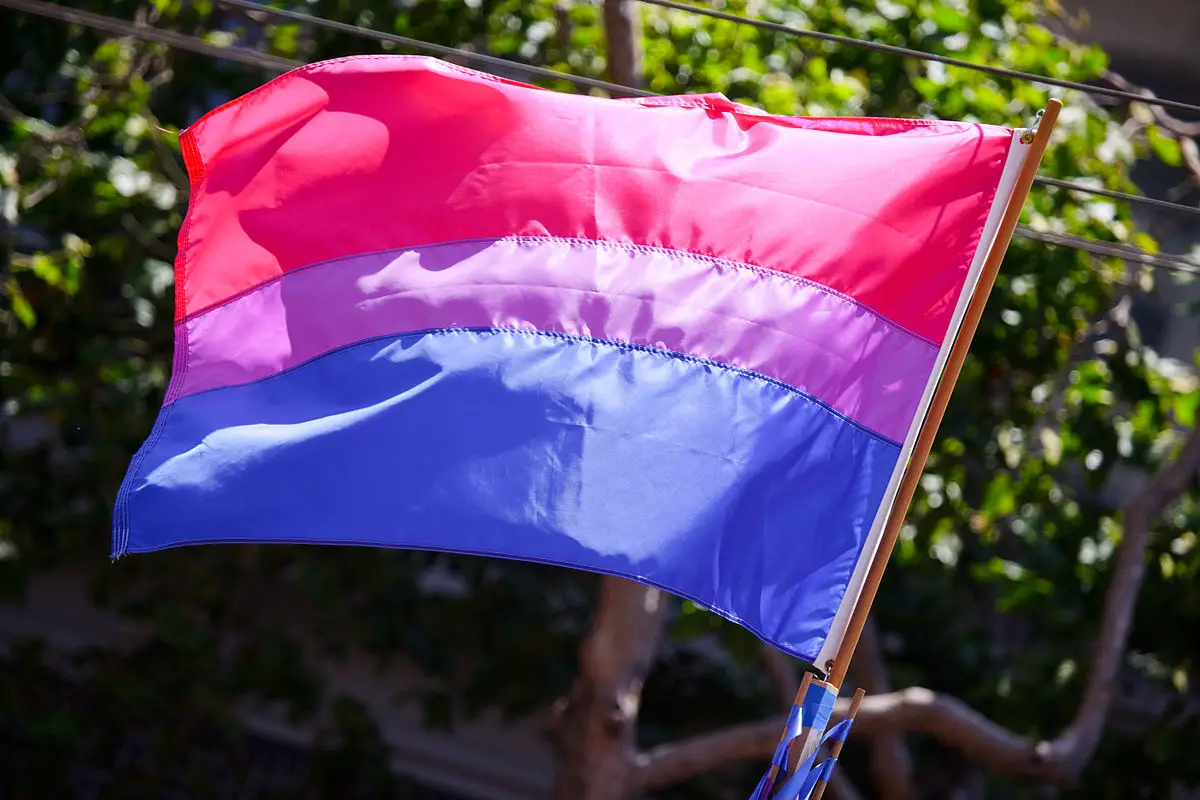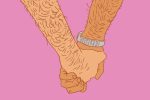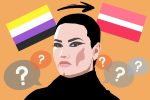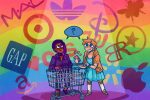A bisexual person takes up a very liminal space in society; they don’t fit perfectly into the binary of attraction. As a result, being bisexual can lead to awkward situations. Other people may make these individuals uncomfortable with their own sexuality or even completely invalidate them.
So, here are a few examples of awkward situations that bisexual people have to deal with almost every day.
1. Not Being Queer Enough
Someone who is bisexual may not feel as though they are queer enough to call themselves queer. Even though queer is an umbrella term that includes all LGBTQ+ people, many people expect others to identify themselves by their specific label, such as bisexual, gay, lesbian, transgender or something else.
Bisexual people, as mentioned previously, exist in a liminal space, so they often don’t fit into the category of straight or gay.
2. Having Their Identity Invalidated
“No one swings both ways” and “you’re probably just gay” are examples of two harmful phrases that bisexual people might be confronted with. Phrases like these aren’t really based on any logical reasoning, just the assumption that people must either be heterosexual or homosexual.
Bisexuality is a valid form of attraction, and it’s sad that some people still are unaware of this.
3. People Assuming They Are Straight
Bisexual people often date individuals of the opposite sex, and it can become easy for others to assume that they are straight. Not only is this assumption inaccurate, it’s harmful, as many of these people are proud to be bisexual, even if they are in what appears to be a straight relationship.
A bisexual’s attraction does not go away once they are involved with someone of the other sex.
4. Being Asked Who They Plan On Dating or Hooking Up With
When someone comes out as being bisexual, some other people may ask them something along the lines of “So what does that mean?” More often than not, these people are trying to figure out if they are more likely to date someone of the same sex or someone of the opposite sex.
This can make the person uncomfortable because they might not be asked the same type of intrusive questions if they were straight.
5. Being Overly Sexualized
Following questions of who they may be interested in romantically or sexually, more often than not bisexual people are labeled as individuals who are overtly sexual in nature, which is an unfair generalization. Bisexual people aren’t any more interested in sex than any other person, nor are they greedy.
Being bisexual just means that the person is interested in two genders; it shouldn’t be that difficult to understand.
6. Being Told They Are Confused
This is common for many queer people but especially common for bisexual people. For many, having the label bisexual helps them feel certain of what they have felt for quite some time. Coming out is hard in and of itself and being told that you are confused can make the process even more difficult, and, well, confusing.
However, if people allow bisexual people to be sure of themselves and their sexuality, it doesn’t have to be so difficult to be who they are.
7. Being Told They Will Go to Hell
This is something that nearly all queer people face. Sometimes “you’re going to hell,” is either simply out of pure hatred or accompanies some concern for their spiritual life. Either way, it is not enjoyable for people who feel this way, either because they may actually care or because they don’t even believe in hell in the first place. From what I know about sexuality is that you can’t exactly change who a person is.
Sexuality is fluid and a person can always learn new things about who they are, but telling someone that they are going to hell isn’t going to stop them from feeling or even outwardly being queer.
8. Being Told Their Sexuality Is a Phase
Let’s face it: no straight person is ever told that their sexuality is a phase; it just doesn’t happen. It seems that in our culture and many other cultures, straight is the default and unless if you outwardly express your sexuality, it is assumed that you are straight.
For this reason, many assume that bisexual people are just experimenting or that they couldn’t possibly seriously feel the way that they do. Even though many queer people are in relationships that last nearly their entire lives, it is common for other people to tell them that it’s a phase when the queer person knows that it’s never been a phase.
9. Being Told It’s for Attention
Many assume that queer people are only coming out or being queer for the attention; they may claim that everyone is becoming queer because it’s more accepted in society. Other times, bisexual women are accused of doing it to gain the attention of men, which is problematic.
When bisexual women are told this, it follows the assumption that women couldn’t possibly be attracted to other women and if so, they are only doing it to get men to feel attracted to them.
10. Being Mistaken as Transphobic
Many bisexuals are attracted to men and women, but not all are. Some bisexuals are even attracted to transgender and non-binary individuals, which goes against a traditional understanding of bisexuality. What many may not understand is that bisexual is expanding, yet is still different than pansexuality.
As a rule of thumb, it is usually important to let someone label their gender and sexuality with what they truly identify with, whether it be gay, straight, lesbian, bisexual, questioning, intersex, transgender, gender fluid demisexual, pansexual, asexual or a number of other labels.
Sexuality and gender expression can be difficult to understand, but these labels may bring comfort and validation to LGBTQ+ individuals.
















